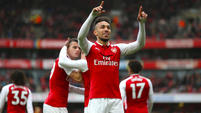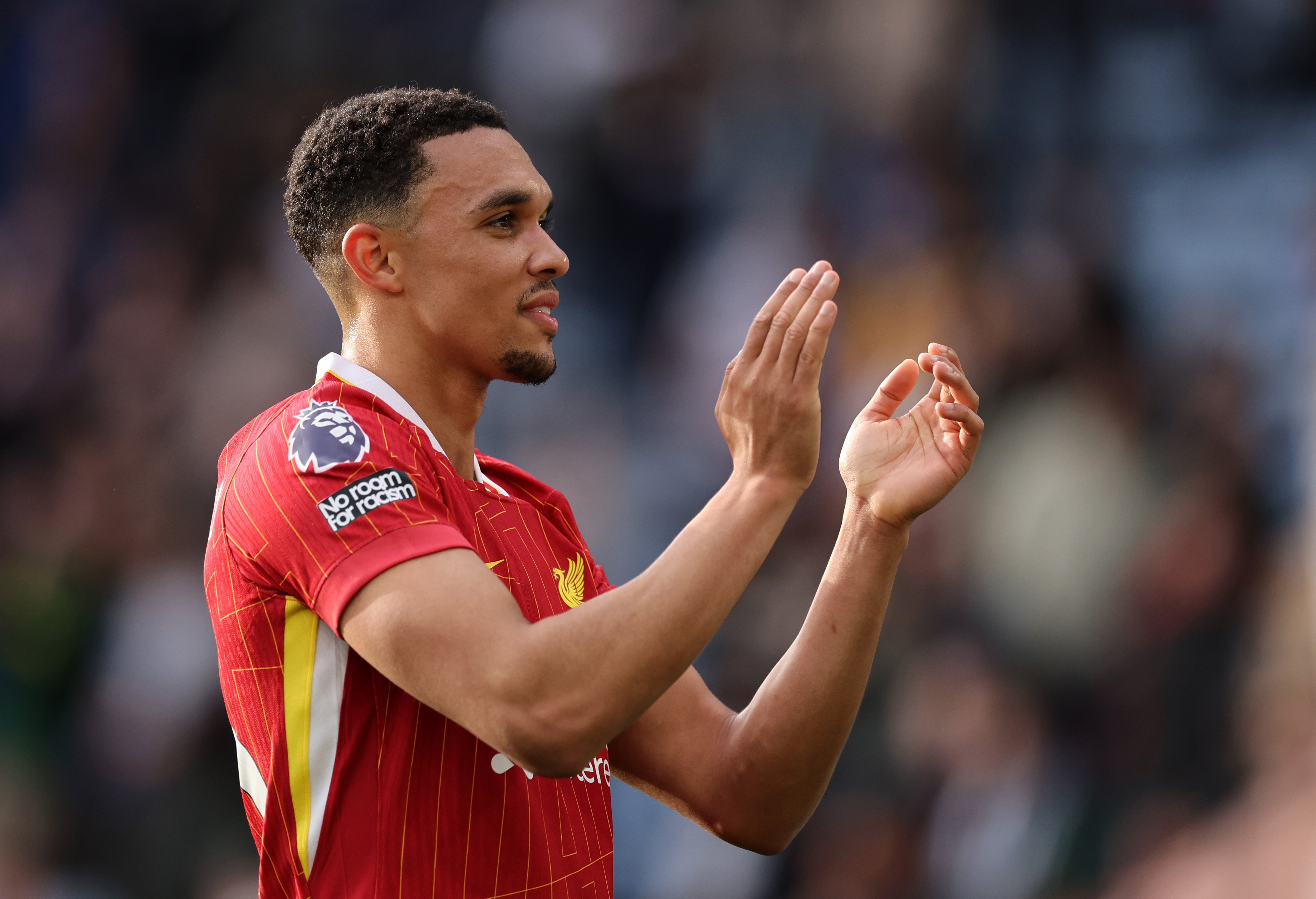What – not who – Arsenal need in the manager who'll replace Arsene Wenger
Seb Stafford-Bloor on the qualities required for the long-serving Frenchman's successor in north London
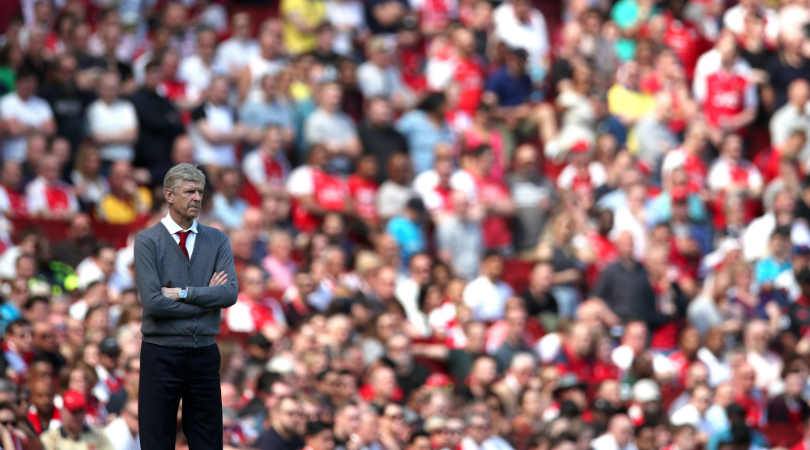
In the days and weeks to come, Arsenal’s succession plan will begin to form. What life after Arsene Wenger looks like has been unimaginable for so long, but now it will start to have a face. Leonardo Jardim, perhaps, who so admirably overpowered Paris Saint-Germain’s juiced muscles in 2017; maybe Luis Enrique, with his Barcelona radiance.
Before the who, it’s worth considering the what. Replacing a dynastic coach is a difficult business at the best of times, but in this case that recruitment has to be informed by more than just literal sporting need.
What, not who
After all, this is a side in flux. None of the players left behind by Wenger could be considered irreplaceable, meaning that whoever inherits his position has a blank canvas on which to paint. So, while footballing logic is relevant and certain ideological stances are more desirable than others, this decision will need to be more circumspect and should consider not just what Arsenal are as a team, but who and what they need as a club.
Obviously, unity is right at the top of that list.
No appointment will ever satisfy everyone, so it’s important that the incoming personality is equipped with the kind of charm which breeds loyalty. He must inspire that one-eyed, us-against-the-world strain of partisanship – the sort which can be felt inside a stadium and infects the players on the field. To an extent, Tottenham succeeded in doing that with Mauricio Pochettino and, to a greater degree, Liverpool repeated the trick when they snagged Jurgen Klopp.
Both men possess the kind of charisma which inspires deeper faith and the Arsenal fan base, which separated into warring factions many years ago, is in urgent need of that balm.
Get FourFourTwo Newsletter
The best features, fun and footballing quizzes, straight to your inbox every week.
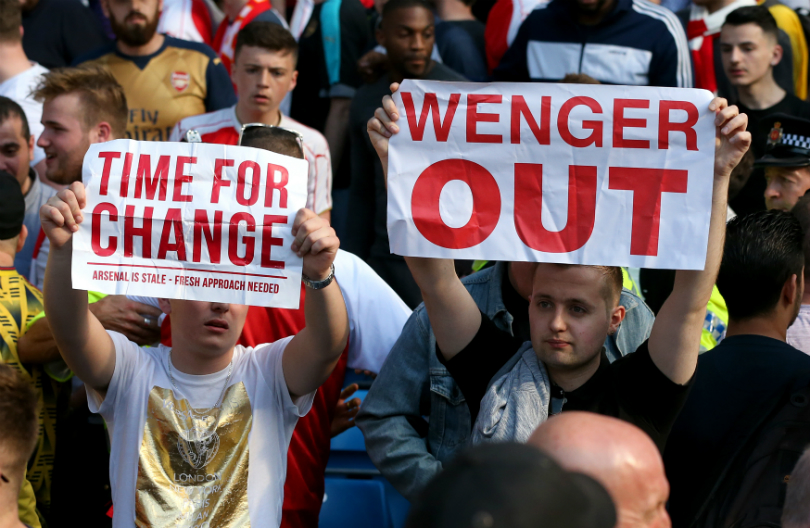
The post-Wenger landscape will be strange. For the first six months, though, it will be entirely predictable: the running battles will continue. Like soldiers who missed the ceasefire, there will be those who cling to their agendas. Wenger loyalists will jump on every insufficient performance and poor result, seek validation at every turn and, in effect, sulk their way through the early days of the new regime. Eventually, the futility of that position will prevail and, when that happens, there must be a true ideologue in place; someone who exudes progression, whose every public utterance is suggestive of a masterplan.
Football is still about winning and losing, points, goals and trophies, but today - probably more so than ever before - it is about buying in. The man in the dugout next season must be someone in whom the supporters can invest. Head coaches will always be wedded to particular tactical systems and approaches in the transfer market, but the fashion now is to be more than that. Fans don’t just want their teams to be coached, they want them to be led in the philosophical sense.
Wenger has been that figure himself – there is no ideological difference between him and Arsenal. They are one. As his own view of the football world became outmoded by oil and gold, so their own place within it began to decline. Regardless, he was the twain around which the club’s ivy grew. Before he arrived, Arsenal were drinking, bungs and mediocrity. On the day of his departure, many years after the Invincibles’ crescendo, their values and associations are completely changed.
So they need that. Or at least, an up-to-date version of that.
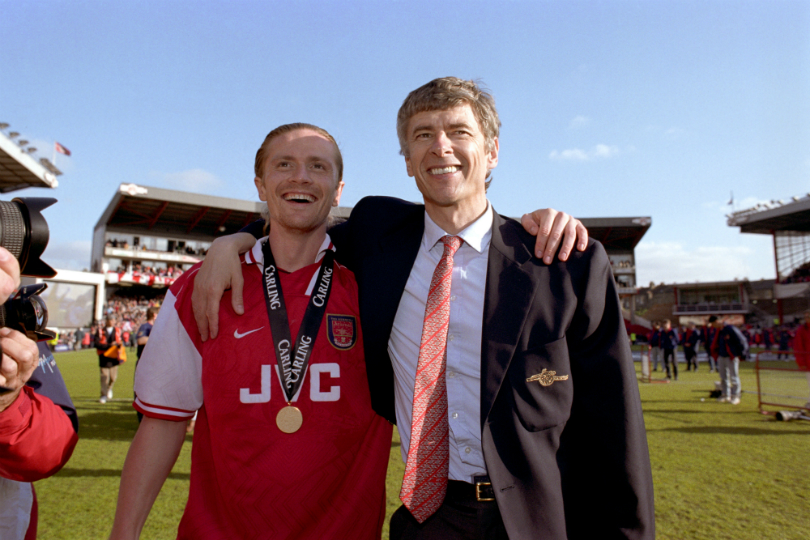
A technical criteria has to be satisfied, too. The age of the autocrat manager has been over for some time; the sums of money involved in top-level football are now too great to be entrusted to one man. In shaping his new squad, Wenger’s successor will work in tandem with Sven Mislintat, the new head of recruitment, and also under the gaze of the club’s executive structure.
Within that detail, the crucial ingredient is harmony - not just appointing people of individual merit, but who also share a common belief about the route to success. For evidence of why, one need look no further than Antonio Conte’s rise and fall Chelsea. Conte is a superb coach, but dysfunction turned his champions into also-rans within the space of a year.
An example to follow
Conversely, Manchester City’s powerful surge to the top of English football attests to the multiplying effect of institutional balance. It attests to the importance of fantastic wealth and a decadent squad, too, but Pep Guardiola’s success has many roots. He hasn’t just won the Premier League this season, he’s dominated it, and his merits as a training-ground coach have been watered by the trust and common belief of those above him.
It’s also what separates Manchester City from Manchester United. One is a club with clearly defined sporting goals that employs a coach suited to meeting them. The other, in thrall to the need to trend and capture developing markets, is driven by fame and celebrity. Both enjoy an enormous financial advantage, but one uses that advantage better than any other; City’s dollars go far further.
As they do at Tottenham; as they’re starting to at Liverpool. The natural separation in the game exists between clubs that have a lot of money and those who only have modest resources. Now, a new divergence exists: there are those who use their resources well, and those who just use them.
Arsenal must be on the right side of that divide. Their financial position isn’t comparable to either of the Manchester clubs, nor Chelsea, but with this new appointment comes the opportunity to line up their organisational pieces in a truly complementary way. Encouragingly, that process has been underway for some time, with the club making a number of off-field appointments over the past year. Clearly, they were modernising - pre-filling gaps which would inevitably be left by Wenger’s departure.
The critical step, though, is the next one. Contradictory as it sounds, the new manager must satisfy the native desires and be the emotional touchstone for supporters, but he must also complete the pre-existing circuit. He must have the strength of identity for the club to grow in his image, but simultaneously be compliant enough to fit into the space created for him. Those are the lights which mark the right path forward.
Seb Stafford-Bloor is a football writer at Tifo Football and member of the Football Writers' Association. He was formerly a regularly columnist for the FourFourTwo website, covering all aspects of the game, including tactical analysis, reaction pieces, longer-term trends and critiquing the increasingly shady business of football's financial side and authorities' decision-making.
